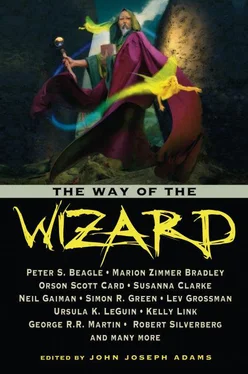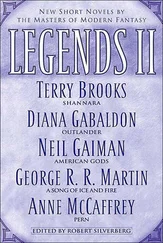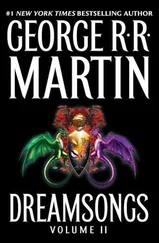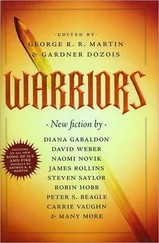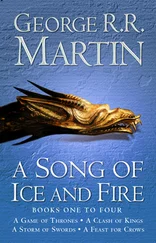Now, straining to see what was happening, she realized why the emperor had chosen her son for his champion. Several of the elites saw clearly the blows that would kill them, yet failed to counter in time. Yet her eyes were drawn to the emperor himself, and she sucked in her breath: the emperor appeared to be aiming at a woman who had crippled one of the elites, but Biantha saw the twist in the scepter’s trajectory that would bring it around to strike Marten. Even a traitor champion could not survive a single touch of the scepter; it would weaken him beyond his ability to recover.
“Marten!” she screamed. He was all she had left of her old home and its decadent intrigues; of a man with gentle hands who had loved her within the narrow limits of court life; of her family. The emperor had stolen him from her for so long—
Mathemagical intuition launched her past the meticulous lemmas and lines of a proof, panic giving her thoughts a hawk’s wings. Biantha spun one more spell. Symmetry: the emperor’s attack became Marten’s, in spaces too strange for the mind to imagine. The Blade Fidora went true to its target, while the scepter missed entirely, and it was the emperor’s golden blood that showered Marten’s hands.
I’m sorry for everything, Marten, thought Biantha, and folded out of consciousness.
The minstrels who survived the Siege of Evergard made into song the deaths, the desperation, the duel between the demon emperor and he who was now heir to the Watchlands. Biantha, for her part, listened and grieved in her own way for those who had died… for Mière’s great-grandson. There was more to any story, she had learned, than what the minstrels remembered; and this was as true of herself, her husband, her son.
Biantha wrote only two lines in the margin of an unfinished book — a book of her own theorems.
There are too many shapes of love to be counted.
One of them is forgiveness.
It was a conjecture, not a proof, but Biantha knew its truth nonetheless. After the ink had dried, she left her room with its well-worn books and went to the great hall where Vathré and Iastre, and most especially Marten, expected her for dinner.
for Ch’mera, and for those who teach math
Lev Grossmanis the author of three novels: Warp, Codex, and The Magicians . He is also a world-renowned critic and technology writer, having been published in such venues as The New York Times, Salon.com, Entertainment Weekly, The Wall Street Journal, and The Village Voice . He is also the long-time book reviewer for Time Magazine . He is currently working on a sequel to The Magicians , which is due out in 2011. Learn more at levgrossman.com.
Grossman’s recent novel The Magicians takes a jaded look at magical tales in the Harry Potter/Narnia mode. Grossman’s protagonist Quentin Coldwater is a shy, bright high school senior with an interest in fantasy novels and stage magic who one day finds himself transported to a secretive magical academy called Brakebills. But this is no delightful voyage of wonder and discovery. Magic, it turns out, is mind-numbingly tedious to learn, and what do you do with your life after you graduate? The instructors at Brakebills are unhinged and often callous, and getting along with the other students is as painful and complicated as in the real world. Finally Quentin begins to believe that he can find a way into a real fantasy world — one full of quests and talking animals — but that doesn’t exactly go according to plan either.
George R.R. Martin says, “ The Magicians is to Harry Potter as a shot of Irish whiskey is to a glass of weak tea.” Our next tale is set in the same universe as The Magicians , and shows what some young wizards get up to when they’re done with studying.
It was morning rush hour and the subway station was packed. The platform was choked with people: they bunched up at the stairs and wherever construction made the space too narrow and they had to walk in single file. Some of them had thought it necessary to bring an umbrella and some of them hadn’t.
They were all trying to hurry while at the same time not touch each other or look directly at each other or acknowledge in any way that there was anybody else on the platform with them. They made themselves human black holes: no information about their interior lives, if they had any, escaped through their faces. A train pulled in, and everybody raised their hands to their ears in unison at the scream of metal on metal.
A pretty young woman with short dark hair stood by a metal pylon at the edge of the platform, just short of the nubby yellow warning strip. She kept her back to the tracks, watching the crowd shuffle by her. Trains came and went, but she didn’t get on any of them. She just stood there. The only other person doing the same thing was an old man in a dashiki sitting on a milk crate under the stairs, who was playing “Margaritaville” over and over again on a steelpan.
The young woman had been excited when she first arrived, but she’d been standing there for two hours now, starting at six in the morning, and her excitement was starting to pall. It was separating out into boredom and jitteriness, the way the frosting on a birthday cake that’s been left out too long separates into butter and sugar. She wasn’t especially enjoying “Margaritaville,” which the old man in the dashiki rendered slowly and lovingly, with a lot of swelling tremolos and rallentandos. She leaned back against the iron pillar, bumpy with hundreds of coats of burnt-orange house paint, thinking bored and jittery thoughts, and let the waves of people wash past her. Here they were, the winners of humanity’s great historical lottery, living in the richest city in the world, in the richest period of human civilization ever, and they were trudging to work in a rat-infested cement cavern on their way to stare at computer screens for eight hours. What happened here? Whose fault was it? Who had betrayed whom? And yes, real live rats. She’d seen six so far.
She just wanted it to start already. She looked at her watch. The fug in the air was rich and capricious — steam, sweat, machine oil, cheese, shit — Jesus, you took your life in your hands every time you breathed in. It was only about the third time she’d ever even been in a subway station.
She glanced down the platform to where Rob was standing, his gawky curly head bobbing and swiveling above the crowd like an ostrich’s, his mouth never quite completely closed. They were supposed to make eye contact every five minutes. That was part of the system. Sean would be somewhere down the other end. The three of them were the stoppers. She looked at her watch, then back at the crowd.
The thing was, it was taking too long. It had already taken too long. Way too long. She looked at her watch again: 8:07.
Possibly they hadn’t come, or they hadn’t come this way, but she didn’t believe it. They had to come this way; tactically it was over-determined ten times over, and plus they had good intel. But the thing was, they didn’t have all that far to come, and they wouldn’t have waited this long. They must have slipped through the net. Maybe their guises were better than anticipated. Something new. They’d be at the goal soon if somebody didn’t chase them down. Probably they were already there, except that then the turn would have ended.
If she could just find them she could take them. She knew she could. It might already be too late. Anyway she had to pee.
She bit her lip and looked at Rob again, gave him the OK sign. Then, when he looked away, she stepped back from the pylon, ditched her prop purse in the trash— if you see something, say something —and joined the crowd that was slowly trying to feed itself up the stairs. She was going off piste , Sean would say. Off the reservation. They would murder her if she was wrong, destroy her, but wasn’t that why she was a stopper? She took the big chances nobody else would. So.
Читать дальше
